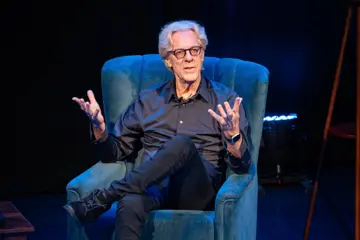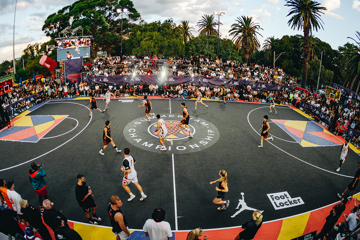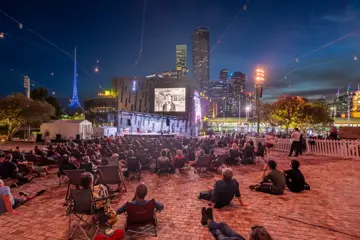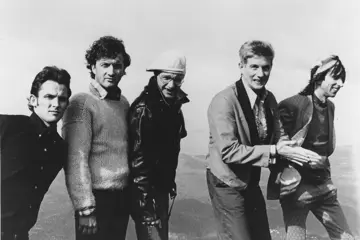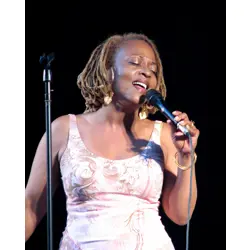 Cassandra Wilson
Cassandra WilsonVocalist Cassandra Wilson has been playing, writing and exploring the broad world of jazz since the start of the 1980s, gaining Grammy Awards, critical acclaim and a worldwide audience along the way. Wilson has always showed a willingness to embrace traditional song as passionately as she does improvisation and evolving the jazz form, and the audience was treated to a wide ranging musical performance that managed to touch a variety of styles.
Wilson's band was nothing short of exceptional. Opening with a composition by her musical director and harmonica player Grégoire Maret, the quintet quickly settled into a groove and flow that perfectly balanced harmonious playing with solos that showcased their virtuoso talents. Bassist Lonnie Plaxico was the solid anchor to drummer Mino Cinelu's Latin-flavoured flair and playfulness. Guitarist Brandon Ross, a longtime musical partner of Wilson's, was an understated yet utterly essential component, while the majority of the melodic adventures were handled with subtletly and vigour by Maret and the violin and mandolin of Charlie Burnham.
The star of course was Wilson, resplendent in flowing dress and elbow-high gloves, who quickly dispelled any hint of diva egotism by kicking off her shoes, exchanging jokes with the front rows and insisting the audience relax and enjoy the music. The following 90 minutes travelled from the blues to Cuban funk and interpretations of pop culture classics, all the while maintaining a strong line of communication with jazz via her masterfully warm and syrupy tone and phrasing that define her style. Wilson's willingness to acknowledge and interpret popular song gave the audience a soulful take on The Monkees' Last Train To Clarksville, a version of Wichita Lineman that brought a refreshing focus to the emotional weight of its lyrics, and her popular rendition of Time After Time.
Wilson's style meant she often allowed her voice to sit back amid the music, acting as another instrument rather than a vocal layered on top. This worked well most of the time but there were moments where her restraint felt like it was limiting the emotional impact of the songs rather than enhancing it. Regardless this was a wonderful all-round performance from some of contemporary jazz's finest musicians.
Don't miss a beat with our FREE daily newsletter




